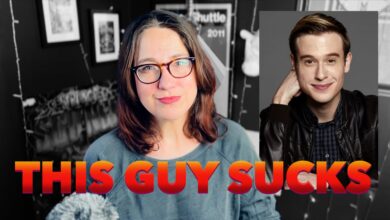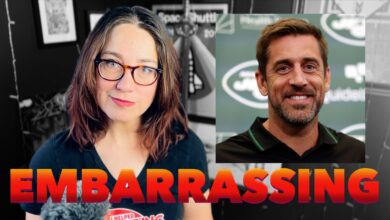AI: Outing Trolls

By now you probably know who Michael Brutsch is. You know he’s one of the worst trolls on the internet. You know his handle: Violentacrez. You know he’s from Arlington, Tx. You know you didn’t know his name when you went to work on Thursday… but you probably knew his work. In fact, Rebecca posted almost exactly one year ago about Reddit’s /r/jailbait, a subReddit that existed for posting sexy pictures of underage girls. You probably (hopefully) know less about some of his other sub-Reddits like /r/Picsofdeadjailbait which contained pictures of dead underage girls.
Some other excerpts from his magnum opus include:
- Chokeabitch
- n****rjailbait
- Rapebait
- Hitler
- Jewmerica
- Misogyny
- Incest
You know who he is because Friday night he was outed by Gawker’s Adrian Chen (some ledes cannot be buried). And the internet did whatever the internet equivalent is of running through the streets, flipping over burning cars. Some flipped in solidarity. Some in anger. Some just because they wanted the parking spot.
A lot of people were angry that this man was being publicly outed. How dare Chen reveal his identity knowing that this information going public would, almost certainly, ruin his life. Others are quick to point out that he ruined plenty of people’s lives, and how fucked up it is to expect your privacy be held sacred for the purpose violating others’. And the whole thing about the internet not REALLY being anonymous and anything you say can come back to haunt you, and those chances increase as the value of that information increases. If you’re anonymously posting pictures of baby sloths on the internet, there is little value in uncovering your identity. If you are posing nude and inappropriately with baby sloths, the value goes up. If you are posting dead teenage girls for lulz? Come. On.
But some people think this is a threat to anonymity online. For those who rely on it. Like our own Bug Girl, who is actually required to remain anonymous.
So, gentle reader, what do you think of the outing of Violentacrez? Is the internet a better or worse place because of it? Do you believe that anonymity is valuable? Is anonymity at risk? Do trolls deserve to be outed?
The Afternoon Inquisition (or AI) is a question posed to you, the Skepchick community. Look for it to appear Sundays, Tuesdays and Thursdays at 3pm ET.





As much crap as Scott McNealy got for saying it, “You have no privacy, get over it.” is largely true. There is no reasonable expectation of privacy online if anyone wants to know who you are. Which isn’t to say you can’t stay anonymous, just that odds are against you.
In this instance I’m entirely unsurprised at people defending his right to privacy when he quite eagerly had zero respect for the right to privacy of his victims. People who sympathize with him are intellectually dishonest and frankly bad people. I’ve no qualms about stating that.
I think the net effect on the internet of this specific incident is zero. The aggregate effect of demonstrating to trolls that there can be consequences to their actions is a net positive.
For those (like Bug Girl) the need for anonymity requires a very high level of vigilance and secrecy that most people aren’t going to pursue.
This sounds very much like you’re putting the burden of self-protection on the marginalized person, which has the inevitable flipside of victim-blaming if it goes wrong.
We NEED privacy, including the option for anonymity, online. We, both legally and socially, need to establish norms that people deserve to be safe online, unless they are demonstrably hurting someone. This cavalier attitude toward privacy that you’re showing is dangerous. Moreover, it’s framed so as to make an “is” an “ought”–“There is no reasonable expectation of privacy online”? Oh really? Well if that is the case that’s very unjust and we need to change that!
Look, we don’t need to throw the baby out with the bathwater in order to get Brutsch. It’s very easy to define a moral norm that “Your right to privacy may be revoked if you harass or abuse others, or violate their privacy.” It’s very simple to understand, and a standard that everyone can live with. You don’t need to phrase your values so as to sell out everyone’s privacy to justify accountability that could be enforced much, much more precisely.
But there is no realistic expectation of privacy if you share your data online. And what that means is that basically, if you share details, understand the risks associated with sharing. Rage against that if you want, but it’s very much the truth these days, and to change that would take major changes at the level of federal law.
You’re right though about victim blaming. Just because for instance, a girl/woman had her sexy pictures swiped (as is the case for Angie Verona), doesn’t mean it’s her fault or that it’s okay to shame her and perv over her.
Which is why we as a society need to make it clear that there IS a reasonable expectation of privacy online, in a moral sense. We need to stand up and show that we expect behavior that respects others’ privacy, and will punish those that don’t, legally if possible.
Again, you’re making an is/ought fallacy. It makes just as much sense to say “There is no reasonable expectation of privacy in the mail system” because someone can easily open a letter if they want to–they’re not magically protected, but because we as a culture TREAT material in the mail as deserving of privacy and generally react with outrage at the thought of opening others’ mail, it generally is. I know there are risks to posting online, but there are also risks to crossing the street. I’m saying that we need to take it upon ourselves to defend each others’ online identities better.
I agree with you in terms of that there should be an expectation of privacy. Though we’d just have to be careful to write the legal language carefully so that it doesn’t infringe on online freedom or protect abusers.
For instance, what’s to stop the man cited in this article to use such legal means against Rebecca if such legislation is passed?
Oh the skeptic community and fallacies. Screaming “FALLACY!” is a bit like screaming “Heresy” among 14th century catholics.
No it’s not a fallacy, it’s just logic, if you post things online you simply risk exposure of your details. What would help in addition to what you mentioned above is education people on how to safely encapsulate their details from the web.
My take on this: if you need to remain anonymous because of conflict of interest, etc., I can understand that. (The example that springs to mind: Drew McWeeney, who wrote for Aint It Cool as Moriarty for years, because his real name being tied to his script/movie reviews could have adversely affected his professional life as a screen writer, etc.)
HOWEVER, if you are relying on anonymity to post awful/illegal pictures that violate other people’s rights (i.e., right to privacy), you forfeit your right to anonymity.
That’s how I see it.
You just knew he was from Texas.
I have a hard time with this issue because…Oh, no wait, this is easy. It’s one thing to use pseudonyms primarily because of personal safety. And then there’s this asshole.
I am totally fine, however, with protecting skeptical trolls and mods:
/r/bigfootcreepshot
/r/deadchupacabraphotos
/r/slothsfucking
/r/Burzynskitoiletcam (the camera faces into the bowl)
RJB
I was SO PLEASED that this transpired the way it did, I just wish it had happened sooner. I really cannot understand the handwringing over the bullshit description of it as “doxxing”. No, people this is called JOURNALISM. That’s what it looks like. Comfort the afflicted, afflict the comfortable, all that.
A person’s view of this entire incident is a great litmus test for whether I want to continue to associate with them.
I’m with revmatty on this. Most of us have quite unreasonable beliefs in the confidentiality of online transactions and the trustworthiness of people we’ve never met.
Complete anonymity can be attained by careful use of anonymizing software, but most of us lack the skills and dedication to pull this off.